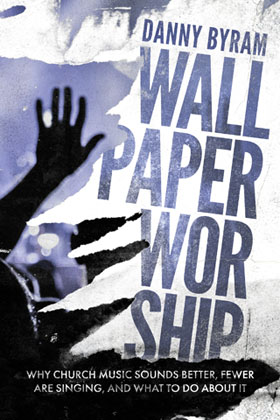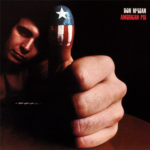
Recently an acquaintance in my men’s group, an accomplished guitarist who teaches public school, shared his elation to have passed the “audition process” to play in his church’s worship band. However, he had a look of uncertainty when he shared with me what he was experiencing.
First, he is having to learn to play his instrument through an “in-ear monitor,” an earplug that plays back all the instruments on the platform. In-ears, as we call them, are valuable when there are many musicians trying to hear themselves from open floor monitor speakers. The stage noise gets so loud it interferes with the house mix. In-ears are a good solution, but take some getting used to.
Next, he was having to learn to play to a “click track”, an electronic metronome pumped through his in-ear monitor. These are used when musicians struggle to stay in tempo, traditionally a problem with non-professionals. Instruments begins to conflict and compete, as singers, guitarists and keyboardists tend to rush tempos, while the drummer and bass player are trying to hold tempos at bay. My friend also stated he was forced to mimic a keyboard part, imported through the internet, which was being heard by the congregants through the house mix. Finally, he shared a new requirement coming down: players have to spend their home hours memorizing 5-6 song charts per week, many of which are rarely repeated after the first performance.
Hearing him talk, I was assuming he was in a church that seated 2,000 or more. Not so. His church gathers 200 people weekly.
He came to his church team simply wanting to play music and assist in leading his fellow congregants into a musical worship experience that was warm, meaningful and fun. Instead what he has found was a process rife with anxiety, pressure and perfection. It seemed disconnected from the congregants, disingenuous, and a hassle. He put away his guitar and dutifully took a congregational seat to “let the pros” do it for him. The pros are hired musicians, not involved in his church.
I hear stories like this regularly. Somewhere, someone or some “worship-industry company” came up with the idea that this should be the model for small local-church music. Much of our millennial generation of worshippers know nothing else. As one who has performed for and produced large events, these technical tools can be necessary for helping professionals perform in a way that is more seamless. I get that. But who told these small churches that they are arenas or stadiums? Who told these music worship pastors they have to drive their volunteers into a world of professional gear, technique and prowess for which they are unprepared, nor possess the time to develop? For years, many larger churches have given up on using volunteers and simply hire outside music professionals. The small churches, like my friend’s, are following suit.
The important question: Is all this necessary for congregants to experience God’s presence together?
Worship leaders, who desire to pastor good-hearted, talented volunteers would do well to consider: is what I am doing real or is it rote?
ROTE: “A routine, fixed, habitual, or mechanical course of procedure; proceeding repetitiously, without meaning.”








After years of trying to stay current with so- called modern worship, I was led back to a more simpler time when playing your instrument and releasing your spirit in song, whether new or old, is enough. We’ve had much more intimate worship, hearing the Spirit, freedom to follow the moment whether that’s a new song, a prayer or words of knowledge rather than being bound to regimented click tracks and backing tracks. No condemnation to those who use them, but I could never go back there. There’s a place for technology, but when it begins to close doors of spontenaity and full freedom, it can cut off the move of the Holy Spirit. My encouragement to the man who resigned to sit back down in the congregation is to find other like minded worshipers who are probably hungry themselves for real worship.
Rick, Thanks for your feedback. I think you said it better than I!
Great article, Danny!
I am a perfectionist, but my personal mantra in dealing with less-than-perfect musical situations in worship is: “if we were the underground church (or early church), would we really care about _______(fill in the blank!)________?????
True “worship” does not need technology or even instruments! It needs nothing but engaged and focused hearts! Your book inspires Worship Leaders to help engage and focus those hearts. Thank you for inspiring and leading US!
Great topic, Danny. I remember being shocked the first time I heard a local church praise band was holding auditions and making cuts – I always believed God gifts us for service in the Church, and His gifts don’t need to be evaluated if the Spirit is truly compelling someone to exercise them. Then, I heard some churches pay their worship team. What’s next? Will we be paying our folks who pass the offering plate or greet at the door? It just encourages the wrong motives for people to “serve”.
Jeremy, good thoughts. Thanks for your input. Blessings!
God looks at the motivation of our heart in all we do. Susan
Hi Susan. Please forgive my extremely tardy response… I agree with the truth of your statement. However, this may not necessarily be an issue of motivation. It simply may be about making decisions of direction/leadership that will ensure our volunteers are placed where they can serve – and that our congregants are given the chance to participate. While my motives may be pure (which only the Holy Spirit knows for sure), my wisdom may be lacking. Thanks for weighing in on this. Blessings.
Susan, first please forgive my tardiness in responding. While I agree with the truth in your statement, this may not be a situation of motivation, but of wisdom in leadership. My position as a leader is to make sure I am making a place for my volunteers and congregants to serve according to their gifts. My motives may be fine (determined by the Holy Spirit, not by me) – but my wisdom as a leader may be lacking. Thanks for weighing in on this. Blessings.
That whole process related by your friend makes me feel very sad and frankly turns me off. In my heart, that is not what worship is all about and certainly does not sound Spirit-led.